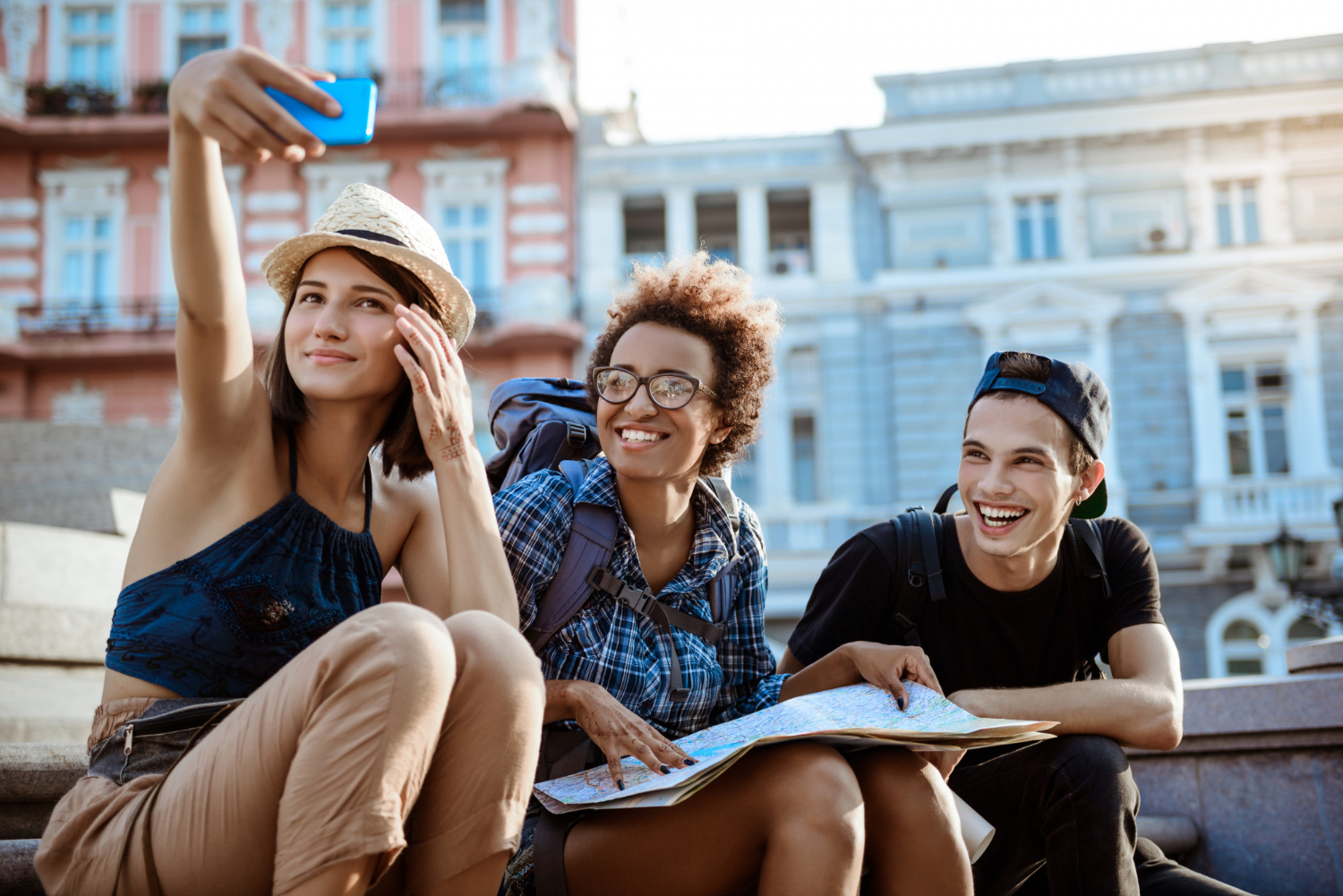Laurea University of Applied Sciences celebrates ten years of global connections through Erasmus+ mobility projects, marking a decade of international exchange, partnership, and progress toward its strategic goals.

Kuva: Cookie_studio / Freepik
Over the past ten years, Laurea University of Applied Sciences has embraced a mission of international collaboration, learning, and development through active participation in the Erasmus+ Global Mobility programme—also known as KA171 (Erasmus+ Programme Guide, 2025). As we celebrate a decade of achievements, partnerships, and global exchange, we also recognise how this journey has advanced Laurea’s long-term strategic goals toward 2035 and beyond.
What is Erasmus+ KA171?
Erasmus+ KA171 is the global mobility action of the European Union’s Erasmus+ programme. While traditional Erasmus+ initiatives focus primarily on exchanges within Europe, KA171 expands mobility opportunities to partner countries outside the EU (European Commission, 2025). This enables students, teachers, and administrative staff to take part in short- or long-term exchanges, fostering international cooperation, intercultural dialogue, and institutional capacity building.
The KA171 programme supports the internationalization strategies of higher education institutions and promotes equity, inclusion, and global partnerships (European Commission, 2025). Through this initiative, Laurea has built strong ties with institutions across the world—from Kosovo to South Africa—creating platforms for collaborative innovation and lifelong learning.
Ten Years of Growth and Impact
Since its first KA171 projects, Laurea has steadily expanded its network of global partners. Over the past decade, more than 300 participants—students, faculty, and staff—have taken part in exchange experiences (SoleMove mobility system statistics, 2025). These opportunities have not only supported individual growth and career development but have also strengthened Laurea’s academic, administrative, and multicultural capacity.
Key milestones include:
- Long-standing collaborations with higher education institutions in South Africa, Japan, and the United States.
- Strengthening staff competencies through training weeks, job shadowing, and mutual learning exchanges, which have enhanced Laurea’s pedagogical approaches and integration of international best practices.
- The integration of the UN Sustainable Development Goals (SDGs) into project objectives, particularly in mobility projects focused on social inclusion, public health, and technology in education.
A hallmark of Laurea’s approach has been the Learning by Developing (LbD) model (Pedagogical Programme of Laurea UAS 2023-2025, 3-4), which has also been successfully introduced to several partner universities through staff training and peer learning during these mobility projects.
Global Mobility in Service of Laurea’s 2035 Vision
The impact of Erasmus+ Global Mobility is evident not only in the number of exchanges but also in how they align with Laurea’s Strategy 2035. At the heart of this strategy lies a commitment to building a sustainable future together with working life, with internationalization as a key driver of innovation and relevance.
Through its KA171 projects, Laurea has made tangible progress toward several of its strategic goals outlined in Strategy 2035. One major area of advancement is sustainable international growth. By expanding its global partner network and engaging in responsible international education activities, Laurea has significantly strengthened its presence on the world stage. Participation in KA171 has also helped the university secure competitive EU research, development, and innovation (RDI) funding, boosting its capacity for high-impact international collaboration.
Another strategic pillar supported by these projects is Laurea’s strong working life orientation. Global mobility initiatives have enabled both students and staff to gain firsthand experience in diverse social, economic, and educational contexts. These experiences cultivate real-world competencies that are highly valued in international work environments and align closely with Laurea’s Learning by Developing (LbD) pedagogical model.
In terms of societal impact, many of Laurea’s mobility projects have addressed pressing global challenges such as public safety, health care accessibility, and social exclusion. Collaborations with international partners have made it possible to co-develop innovative solutions, contributing meaningfully to both regional and global development needs.
Moreover, the projects reflect Laurea’s core value of inclusion. By ensuring participation from individuals and institutions in underrepresented or less advantaged regions, Laurea reaffirms its commitment to openness, equality, and shared responsibility in building a more inclusive higher education landscape.
Looking Ahead: New Erasmus+ Global Mobility Projects 2025–2028
Laurea has recently secured Erasmus+ Global Mobility funding for 2025–2028 with partners in South Africa, Zimbabwe, Chile, Barbados, and the USA. A milestone in this work is Laurea’s first cooperation with Bindura University of Science Education (BUSE) in Zimbabwe, initiated with the support of the Finnish NGO Dzikwa Trust. The project addresses local community needs such as digital skills, e-learning, education support, cultural activities, and well-being, while also building capacity in areas like social work, peace and governance, agriculture, and ICT.
Across all regions, the initiatives share common goals: capacity building for vulnerable communities, innovation in ICT and e-learning, gender equality, social skills, and global citizenship. Cooperation has already engaged embassies as well as Chilean and Finnish companies and is now expanding into fields such as risk and crisis management and maritime security.
The overarching aim is to enhance global competencies, resilience, cross-cultural understanding, and crisis preparedness among students. Through joint programmes and short schools, both online and face-to-face, the projects will promote practice-oriented learning in service design, circular economy, AI tools, foresight, and the localization of solutions.
A Foundation for the Future
As Laurea looks ahead to 2035, its decade of success in Erasmus+ Global Mobility stands as a powerful testament to its values—openness, effectiveness, and responsibility. These projects have not only opened doors across borders but have also cultivated global citizens, innovative educators, and resilient partnerships.
In celebrating this ten-year journey, we also celebrate the people—students, staff, and partners—who have made it possible. With new horizons emerging and Laurea’s strategy as a guiding light, the next decade promises even more impactful and inclusive global engagement.
References